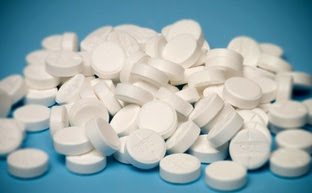There is a variety of different types of insomnia medications. The different categories of medication are usually used depending upon the underlying reason for your insomnia. Insomnia medications are divided into four broad categories:
- Antidepressants;
- Antipsychotic medications;
- Over-the-counter (OTC) Sleep medications.
Sedative-Hypnotics
Sedative-hypnotics are used to reduce the amount of time it takes to fall asleep and increase the duration of sleep. These medications are generally taken orally at bedtime, although some of the newer forms of sedative-hypnotics can be taken on an "as needed" basis whenever symptoms occur. Sedative-hypnotics classified as benzodiazepines.
Sedative-hypnotics fall into two categories: benzodiazepines and non-benzodiazepines.Benzodiazepine Hypnotics
The most common benzodiazepine hypnotic drugs are under the brand names Halcion, Dalmane, Restoril and ProSom. These drugs work by influencing the benzodiazepine receptors in the brain, which help make you feel sleepy. It acts by increasing the action of gamma amino butyric acids, which involves in slowing down the transmission of nerve signals in the brain. Benzodiazepine insomnia medications can affect an ability to stay alert. They can also cause restless sleep.
Non-Benzodiazepine Hypnotics
 The most common non-benzodiazepine hypnotic insomnia medications include Lunesta, Sonata and Ambien. One of the most used non-benzodiazepine drug is zolpidem or the Z-drug. It is a newly developed drug and like benzodiazepine drugs, these insomnia medication work on the receptors in the brain, however, non-benzodiazepine drugs have shorter half-lives, which means they leave the body more quickly. These drugs can provide a more restful sleep. The side effects are drowsiness and dizziness, impaired coordination and loss of alertness. These insomnia drugs work very fast, so they must be taken right before bed and a person should allow for a full night's sleep or the effects of the drug may still be present the next day.
The most common non-benzodiazepine hypnotic insomnia medications include Lunesta, Sonata and Ambien. One of the most used non-benzodiazepine drug is zolpidem or the Z-drug. It is a newly developed drug and like benzodiazepine drugs, these insomnia medication work on the receptors in the brain, however, non-benzodiazepine drugs have shorter half-lives, which means they leave the body more quickly. These drugs can provide a more restful sleep. The side effects are drowsiness and dizziness, impaired coordination and loss of alertness. These insomnia drugs work very fast, so they must be taken right before bed and a person should allow for a full night's sleep or the effects of the drug may still be present the next day. Anti-Depressants
Antidepressants such as Elavil, Pamelor, Desyrel, Sinequan and Serzone are also used as insomnia treatments. These insomnia medications are usually only used for someone whose insomnia prevents them from staying asleep but not falling asleep. These insomnia drugs usually produce a side effect of drowsiness, which is why they are used as insomnia medications. The most common side effects of anti-depressants are dry mouth, constipation and blurred vision. Some people may also experience an increased heart rate.
Antipsychotic Medications
Even though these drugs can be prescribed for insomnia, most of them haven't been tested for this purpose and there are potentially serious side effects to using them.
The antipsychotic medications like Seroquel and Zyprexa, which are intended to treat psychiatric conditions like bipolar disorder, schizophrenia, and severe depression, have also been used to treat insomnia because of their effectiveness at getting people to sleep.
Over the counter (OTC) medications
Antihistamines such as Benadryl, Nytol and Sominex are the most common form of over-the-counter (OTC) sleeping aid. Although antihistamines are designed to block the chemicals that the body releases during an allergic outbreak, they have the ability to calm which makes them effective at encouraging sleep. However, this is a point of considerable debate. Some OTC sleep aids contain pain relievers and even if they don't, OTC sleep aids should never be taken with alcohol. Even though they're available without a prescription, it's advisable to consult with a medical professional before taking any type of sleep aid.







